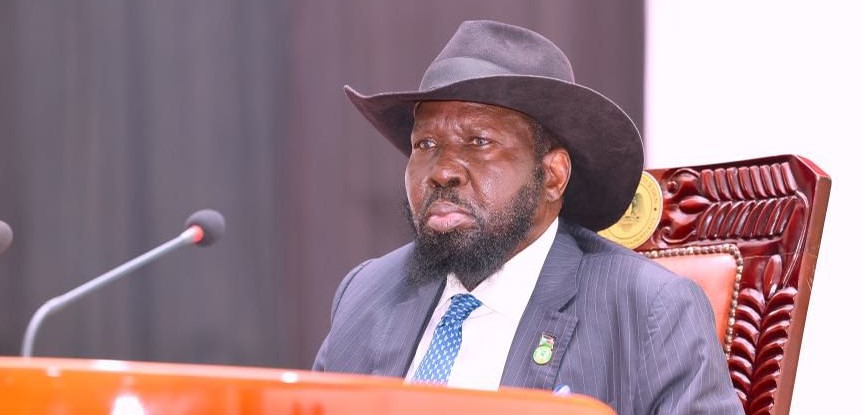South Sudan’s President Salva Kiir on Wednesday called on holdout opposition groups to embrace dialogue and reconciliation, framing it as critical for national unity as the country prepares for elections in 2026.
Kiir’s appeal came during a speech marking the reopening of parliament after a six-month recess. He urged opposition factions outside the 2018 peace agreement to join the government in the spirit of reconciliation and nation-building, offering armed groups integration into the national army.
“The suffering of our people must not be prolonged by the continued rejection of dialogue,” Kiir told lawmakers, religious leaders, diplomats, and civil society representatives at the National Assembly in Juba.
The government has previously engaged in talks with a faction of holdout groups, including the United People’s Alliance (UPA) led by Pagan Amum. However, negotiations stalled in February in Nairobi, Kenya, after the government delegation requested an adjournment to prepare for the extended transitional period on Feb. 22, 2025.
Dr. Martin Elia Lomuro, the government’s rapporteur at the talks, said the pause was necessary for logistical preparations in Juba. But the UPA criticized the move, accusing the government of lacking commitment to peace.
Kiir also acknowledged that key tasks under the 2018 peace deal remain incomplete but stressed progress in establishing institutions and conflict resolution efforts.
Addressing the country’s economic instability, Kiir said a temporary halt in oil production—which disrupted public salary payments and services—had been resolved. He directed the vice president for the economic cluster to prioritize salary arrears for civil servants and security forces while restoring essential services.
Kiir reaffirmed South Sudan’s commitment to regional cooperation, thanking international partners, including the Troika (Norway, Britain, and the United States), the European Union, and the African Union for their support. However, he demanded the lifting of sanctions, calling them “outdated and harmful.”
He noted improved relations with Sudan on border and trade issues and pledged continued collaboration with Ethiopia, Kenya, and Uganda.
Meanwhile, Parliament Speaker Jemma Nunu Kumba highlighted the impact of delayed salaries and poor public services, urging swift government action.
Cardinal Stephen Ameyu Martin Mulla of Juba’s Catholic Archdiocese appealed for leaders to reject division and embrace dialogue among South Sudan’s diverse communities.
Kiir and his rival, First Vice President Riek Machar, signed a fragile peace agreement in 2018 and formed a power-sharing transitional government. However, the deal has faced implementation challenges due to mistrust between the two leaders.
Tensions between Kiir and Machar reached a low point in March when Kiir placed Machar under house arrest, accusing him of supporting a rebellion. Several of Machar’s allies were also arrested.




